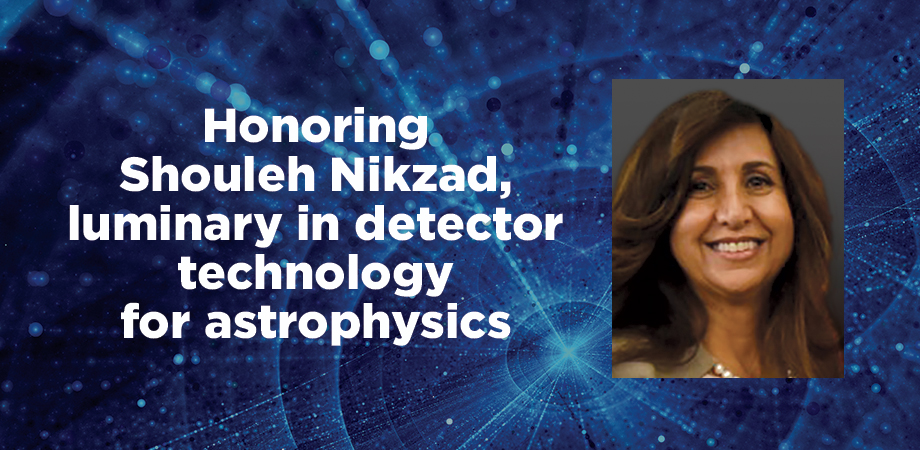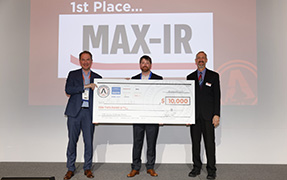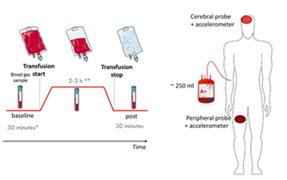SPIE Luminary Shouleh Nikzad

The SPIE Luminary Series
In 2021, SPIE celebrates the work of those who have "lit the way" for research in optics and photonics. Each of these luminaries has made a significant impact on the development of a field that is core to SPIE, including biomedical optics, electronic imaging, optical systems, lens design, neurophotonics, light-based energy research, remote sensing, medical imaging, and nanophotonics. A different luminary will be featured each month.
Many of these luminaries have published with SPIE for decades, while others are newer to our community. To highlight their contributions to the literature, SPIE will make all of their SPIE-published research open access for one month in the SPIE Digital Library, including SPIE Proceedings and journal papers.
October Luminary: Shouleh Nikzad
Jet Propulsion Laboratory (JPL) Fellow and Senior Research Scientist Shouleh Nikzad is recognized internationally for her contributions to ultraviolet (UV), optical, and near-infrared technologies, particularly detectors. At JPL, she is also the technical supervisor and lead of the Advanced Detector Arrays, Imaging Systems, and Nanoscience group.
She has been a leader on many inventions and developments, including high-performance detectors. With expertise in surface and interface nano-engineering such as 2D-doped silicon detectors, as well as advanced coatings for optics and filter technologies, Nikzad is transforming UV instrumentation and having a significant scientific impact on UV astrophysics and planetary science. Her development of detectors with high sensitivity and tailorable response has enabled UV astrophysics in CubeSat and smallsat platforms, such as the Star-Planet Activity Research CubeSat (SPARCS) and Dorado, a wide field-of-view mission concept with a primary objective to detect UV counterparts to gravitational waves.
An SPIE Member since 1994, and now a Fellow of the Society, Nikzad sits on the SPIE Equity, Diversity, and Inclusion (EDI) committee and on its Fellow Member committee. She has previously served on the Engineering, Science & Technology Policy (ESTeP) and Senior Member committees. She has led special sections in two SPIE journals, Neurophotonics and the Journal of Astronomical Telescopes, Instruments, and Systems (JATIS), and is currently an associate editor for JATIS. She also serves as a co-chair for the SPIE Astronomical Telescopes + Instrumentation Symposium (2020-2022). In 2020, she was honored with NASA's Outstanding Leadership Medal; in 2021, she was honored with the SPIE Aden and Marjorie Meinel Technology Achievement Award.
"Dr. Nikzad is one of those rare technologists who have not only excelled in astrophysics, but also crossed disciplines to make notable contributions to the field of neuroscience," says Mark Clampin, JATIS Editor-in-Chief and Director of the Sciences and Exploration Directorate at NASA's Goddard Space Flight Center.
For the month of October, all of Shouleh Nikzad's papers in the SPIE Digital Library will be open access to honor her contributions to detector technology for astrophysics.



